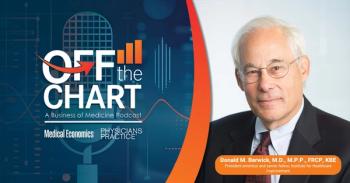
Death Panels, Real and Imagined
Dozens of Medicaid patients awaiting organ transplants are being left to die because cash-strapped Arizona will not pay for the operations.
Death and the state of Arizona have been on my mind a lot lately. The Grand Canyon State is not merely the place where a deranged young man shot a U.S. Congresswoman and 19 other people in a supermarket parking lot, killing six of them, including a federal judge and a little girl. It is also where dozens of Medicaid patients awaiting organ transplants are being left to die because the cash-strapped state will not pay for the operations. And Arizona was a hotbed of Tea Party outrage during the healthcare reform debate, when some opponents warned absurdly of planned government "death panels."
In journalism, it's dangerous to try to string together separate news items into a single narrative. But in this case the ironies are clear.
The Obama administration has now twice caved in to the death panel brigade. During the debate over health reform in 2009, the administration consented to the removal of a sensible provision that would have reimbursed physicians for providing their patients end-of-life counseling. Critics said such counseling would somehow lead to government bureaucrats deciding who would live and who would die. They never explained how that would happen.
In fact, such counseling is wanted and needed by most patients but they would be in no way forced to receive it. The physicians of those patients who want it should be reimbursed for their time and expertise. And, yes, end-of-life counseling may eventually have had the effect of contributing to moderated Medicare expenditures, if some of those who received the counseling ultimately made informed decisions to forego extraordinary efforts to extend their lives. This is a death panel … how, exactly?
Then came news in December that CMS would use its rule-writing authority to restore the reimbursement for end-of-life counseling. A rare victory for sanity. But a fleeting one. No sooner did that news break than the death panel brigade renewed its complaints and the administration folded again. Not exactly a profile in courage. Maybe next year, CMS said.
Speaking of death panels, shame on Arizona for the real one it created with its heartless decision to refuse to pay for organ transplants for Medicaid patients who need them. At least two people have died waiting for transplants - even though matches had been found - because the state wouldn’t pay for the procedures. Dozens more await the same fate this year. "Failure to restore this funding is a death sentence for people who have committed no crimes," Rainer Gruessner, MD, told the Associated Press. If that name rings a bell, he's among the University of Arizona surgeons caring for Rep. Gabrielle Giffords.
I understand that transplants are expensive, that states are cash-strapped, and that Medicaid, in particular,
Federal law forbids Medicare from considering cost as a reason for denying payment for a particular treatment. Why shouldn't the poor get the same protection?
Do you think reimbursing physicians for end-of-life counseling might lead to government "death panels"? And what are your experiences and views of Medicaid? Tell me about it in the comment box below.
This article originally appeared in the February 2011 issue of Physicians Practice.
Newsletter
Optimize your practice with the Physicians Practice newsletter, offering management pearls, leadership tips, and business strategies tailored for practice administrators and physicians of any specialty.









